‘He’d still be alive had those in power cared’
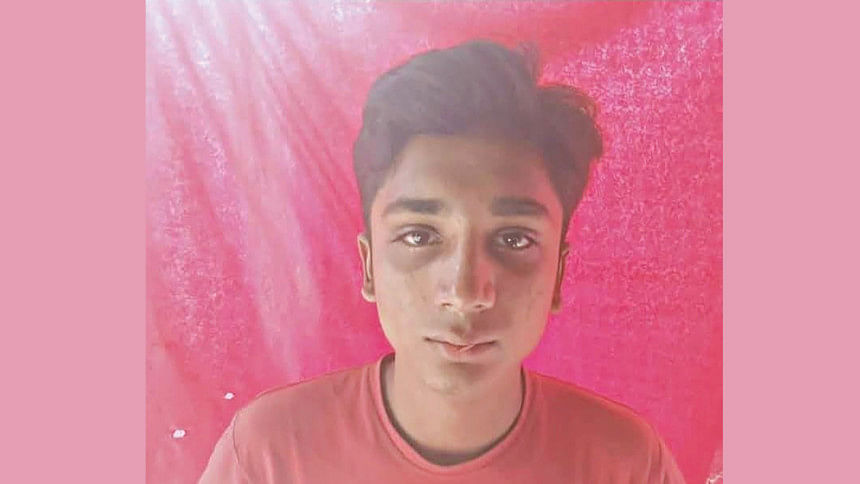
Ashiqur Rahman Hridoy, 16, was hit with 35 shotgun pellets -- three of them lodged in his head -- during a protest against the state crackdown on quota reform demonstrators in Dhaka's Jatrabari on July 18.
He miraculously survived that day, but died eight months later, without proper treatment and ignored by the very people he believed he was fighting for, the family claimed.
Since August 5, the day Sheikh Hasina's government fell, his father, Ansar Hawladar -- a rickshaw-puller from Patuakhali -- went door to door, seeking help for his son's treatment.
No one responded.
Neither the state nor the student leaders, who are now building political careers off the uprising, came forward to help. Not even the July Shaheed Smriti Foundation, which was established to support the wounded and families of those killed, alleged Ansar.
"I went to the July foundation in Dhaka twice from Patuakhali. The last time they mocked me, saying people like me show up with fake cases," said Ansar, weeping beside his son's freshly dug grave.
"He'd still be alive had those in power cared," he added.
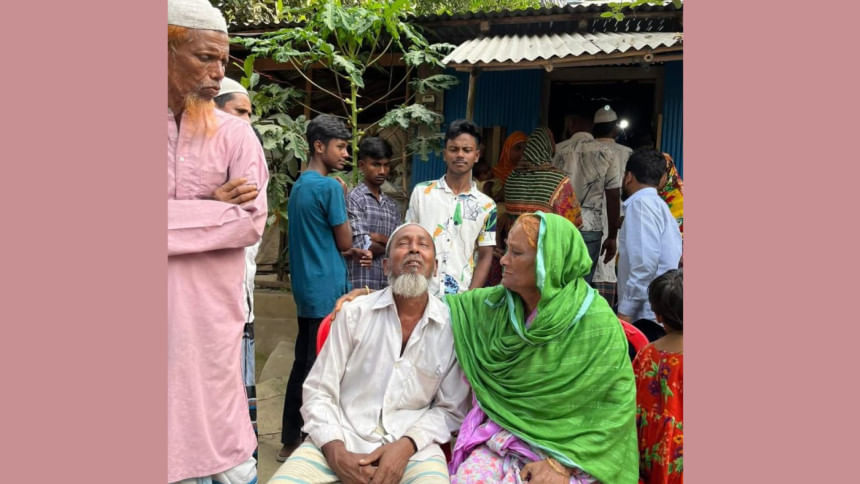
Meanwhile, Hridoy suffered at their home in Jouta village of Baufal upazila. His vision worsened, fevers became frequent, and the pain from the remaining pellets intensified. On Wednesday, his condition deteriorated.
He succumbed to his injuries at the Baufal Upazila Health Complex on Friday.
Ansar said he sold his only battery-powered rickshaw and a cattle to take Hridoy to Dhaka for treatment. Doctors even recommended treatment abroad, which was beyond the family's means.
Only after his son's death did Ansar receive Tk 20,000 for funeral expenses from the assistant commissioner (land) of Baufal, along with a promise from the Patuakhali deputy commissioner to help him buy a new rickshaw.
Hridoy, the youngest of four siblings, dropped out of school after class seven due to poverty. He worked occasionally in his village and Dhaka, where his elder brother Shohanul Islam Anis works as a carpenter.
Hridoy came to Anis's home in Jatrabari on July 13 and joined the protests.
"I told him not to go, fearing something might happen. But he kept going without telling me," said Anis.
After being shot on July 18, Hridoy was treated at Dhaka Medical College Hospital, where two of the three pellets were removed from his head. Doctors advised against removing the third due to a risk of fatal complications.
Although treatment at DMCH was free, the family struggled with associated costs. "We could only afford basic medicine from local pharmacies. Proper treatment might have saved him," Anis said.
Anis alleged he tried multiple times to contact top student leaders for help but received no response.
Contacted, Jahid Hossain, public relations officer of July Smriti Foundation, said, "Hridoy's name was not in the Management Information System (MIS) of any government hospital, meaning his family never submitted the required documents. We are deeply saddened, but without proper documentation, we couldn't help."
Regarding allegations of mistreatment, Jahid said, "I don't believe our staff behaved inappropriately. The incident likely happened outside our premises. We have no record of any of Hridoy's family visiting us."
On February 5, this newspaper published a report exposing the bureaucratic hurdles faced by July uprising victims while seeking aid from the foundation. It included the stories of a martyr's widow working as a house help, a single mother in her sixties denied support over paperwork issues, and a Jagannath University student refused aid due to a minor documentation error.
The JnU student, Afnan Sabik, yesterday said he had still not received any assistance, despite resubmitting proper documents over a month ago.
In response, Jahid said the foundation will investigate the matter.
Asked if the aid process has been streamlined, Jahid said, "Previously, victims had to return to their home districts for verification. That's no longer required. Now, if the documents are in order, the process takes about two weeks."
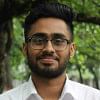
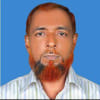
 For all latest news, follow The Daily Star's Google News channel.
For all latest news, follow The Daily Star's Google News channel. 


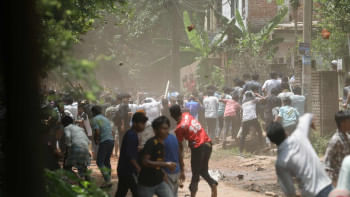
Comments